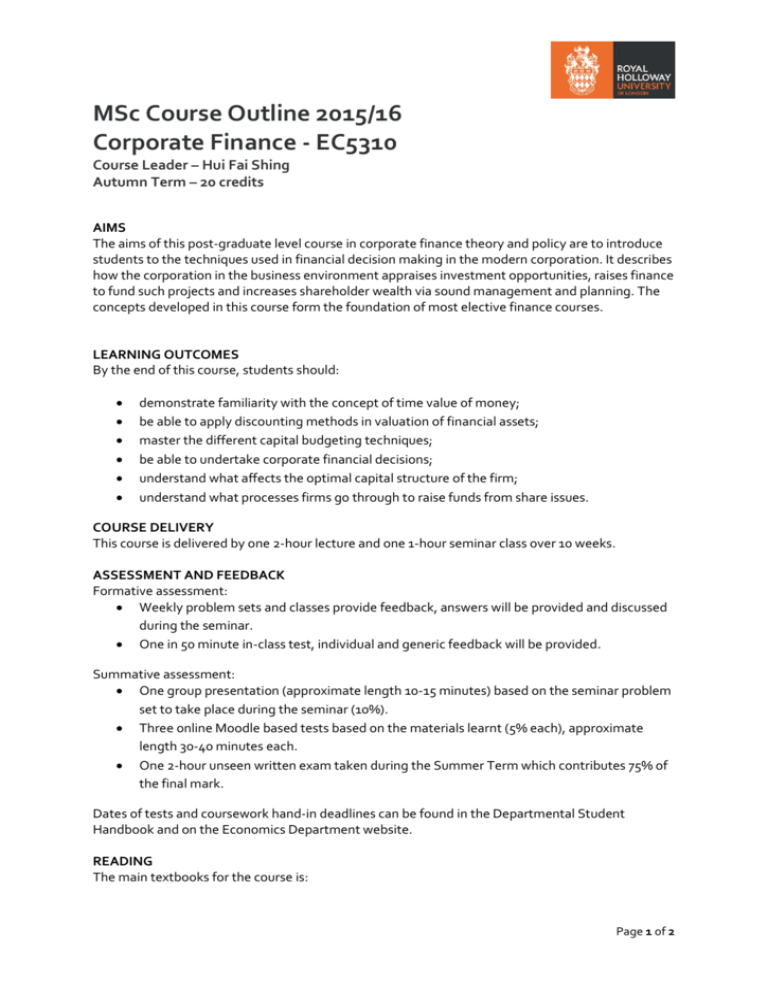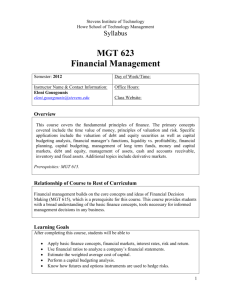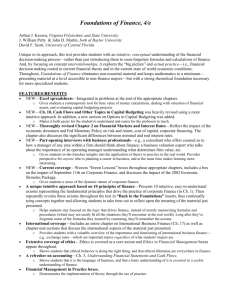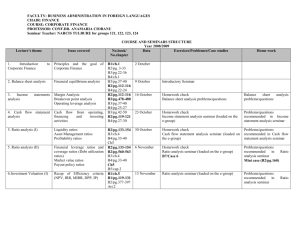EC5310 Course Outline 2015-16
advertisement

MSc Course Outline 2015/16 Corporate Finance - EC5310 Course Leader – Hui Fai Shing Autumn Term – 20 credits AIMS The aims of this post-graduate level course in corporate finance theory and policy are to introduce students to the techniques used in financial decision making in the modern corporation. It describes how the corporation in the business environment appraises investment opportunities, raises finance to fund such projects and increases shareholder wealth via sound management and planning. The concepts developed in this course form the foundation of most elective finance courses. LEARNING OUTCOMES By the end of this course, students should: demonstrate familiarity with the concept of time value of money; be able to apply discounting methods in valuation of financial assets; master the different capital budgeting techniques; be able to undertake corporate financial decisions; understand what affects the optimal capital structure of the firm; understand what processes firms go through to raise funds from share issues. COURSE DELIVERY This course is delivered by one 2-hour lecture and one 1-hour seminar class over 10 weeks. ASSESSMENT AND FEEDBACK Formative assessment: Weekly problem sets and classes provide feedback, answers will be provided and discussed during the seminar. One in 50 minute in-class test, individual and generic feedback will be provided. Summative assessment: One group presentation (approximate length 10-15 minutes) based on the seminar problem set to take place during the seminar (10%). Three online Moodle based tests based on the materials learnt (5% each), approximate length 30-40 minutes each. One 2-hour unseen written exam taken during the Summer Term which contributes 75% of the final mark. Dates of tests and coursework hand-in deadlines can be found in the Departmental Student Handbook and on the Economics Department website. READING The main textbooks for the course is: Page 1 of 2 Hillier, Ross, Westerfeld, Jaffe, and Jordan, Corporate Finance, 2nd European Edition Ed, McGrawHill Irwin, 2013. It is recommended that you have access to a copy of this book as the course will follow it very closely. Another potentially useful book is: Brealey, Myers, and Allen, Principles of Corporate Finance, 10th Ed, Prentice Hall, 2011 WEEKLY TIMETABLE Tentative 0utline: Corporate Governance Time Value of Money Discounting Methods and NPV Valuation of Financial Securities Capital Budgeting Real Options Analysis: Capital Budgeting under Uncertainty Capital Structure Information Asymmetry and Agency Theory Dividend Policy Equity Financing More details will be provided on Moodle. Page 2 of 2











